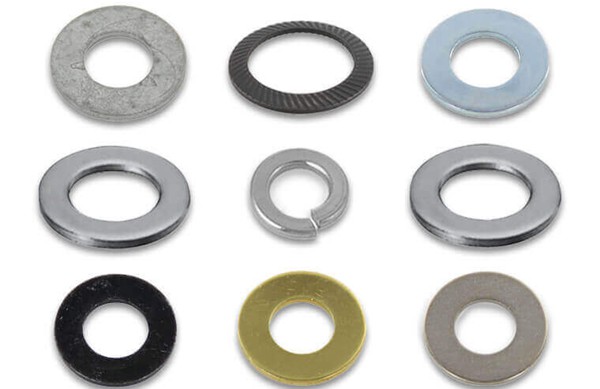In the world of fasteners, ensuring the longevity and reliability of bolted and screwed connections is paramount. Among the array of components designed to fortify these connections, internal and external shakeproof washers stand out as critical elements. Their specialized designs and functionality play pivotal roles in preventing loosening, reducing vibrations, and enhancing stability in various applications across industries. Understanding the distinct characteristics and applications of these washers is essential for optimizing the security and performance of bolt and screw assemblies.
Table of Contents
Internal Shakeproof Washers: Functionality and Applications
Internal shakeproof washers, also known as star washers or toothed lock washers, feature serrations or teeth on their inner circumference. These teeth are designed to bite into the mating surface between the washer and the material being fastened, creating friction and resistance against loosening due to vibrations or movement.
Their unique design imparts an inward force upon tightening, embedding the teeth into the material surface. This action creates a lock between the washer and the substrate, effectively preventing the nut or bolt head from rotating and loosening over time. Internal shakeproof washers find applications in machinery, automotive assemblies, electrical equipment, and various mechanical systems where vibration resistance and stability are critical.
Benefits of Internal Shakeproof Washers
The primary advantage of internal shakeproof washers lies in their ability to resist loosening caused by vibrations or dynamic loads. By creating a secure lock between the washer and the material surface, they provide added assurance that the fastened joint will remain intact, even in high-vibration environments. This feature significantly enhances the reliability and longevity of connections, reducing the need for frequent maintenance or tightening.
Additionally, internal shakeproof washers offer a cost-effective solution for improving joint stability without requiring specialized tools or complex installation processes. Their simple yet effective design makes them versatile components suitable for a wide range of applications across industries.
External Shakeproof Washers: Design and Applications
In contrast to internal shakeproof washers, external shakeproof washers, also known as serrated lock washers or external tooth washers, feature serrations or teeth on their outer circumference. These teeth are designed to bite into the underside of the bolt head or nut, creating resistance against rotation and preventing loosening under dynamic conditions.
External shakeproof washers work in conjunction with the bolt or nut, providing an additional locking mechanism when tightened. The teeth on the washer interface with the mating surface of the fastener, creating friction that helps maintain tension and stability in the joint. These washers are commonly used in automotive applications, machinery, construction, and other industries where securing bolts and nuts against vibration-induced loosening is crucial.
Advantages of External Shakeproof Washers
External shakeproof washers offer similar benefits to their internal counterparts by providing resistance against loosening caused by vibrations or movement. By creating a locking interface between the washer and the fastener, they help maintain the integrity of bolted connections in environments prone to dynamic loads or high levels of vibration.
Moreover, external shakeproof washers offer ease of installation and compatibility with standard bolts and nuts, making them convenient additions to various fastening applications. Their design simplicity and effectiveness in preventing loosening contribute to enhanced reliability and safety across different industries.
Considerations for Application
When considering the application of internal or external shakeproof washers, several factors should be taken into account. The magnitude and frequency of vibrations, the material properties of the components being fastened, and the specific requirements of the application should all influence the choice between internal and external shakeproof washers.
Additionally, selecting the appropriate size and material for these washers is crucial to ensure compatibility and optimal performance in diverse environments. Engineers and manufacturers carefully assess these factors to determine the most suitable type of shakeproof washer for a given application, thereby maximizing the reliability and stability of bolted connections.
Conclusion
Internal and external shakeproof washers stand as indispensable components in the realm of bolt and screw assemblies, providing essential stability and resistance against loosening in dynamic environments. Their specialized designs, featuring serrations or teeth, create locking interfaces that mitigate the effects of vibrations and movement, thereby enhancing the reliability and longevity of fastened joints.
Whether employed in machinery, automotive systems, electrical equipment, or construction, these washers play pivotal roles in ensuring the integrity of connections. Their ability to prevent loosening caused by dynamic loads or vibrations contributes significantly to the safety, stability, and efficiency of various applications across industries. By understanding the functionalities and applications of internal and external shakeproof washers, engineers and manufacturers can optimize the performance and reliability of bolted assemblies in diverse environments. Contact us for more information on washers with teeth.

